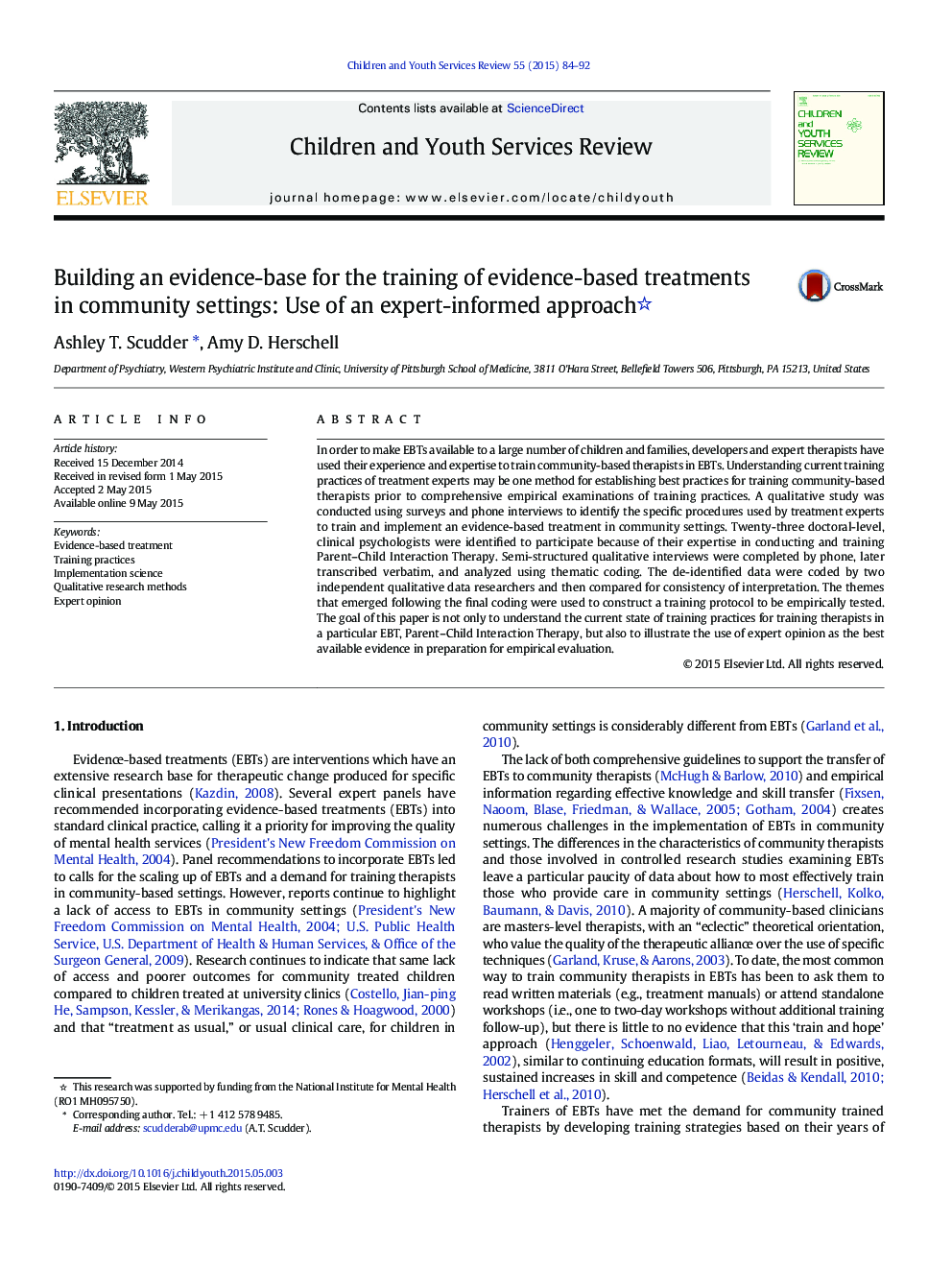| Article ID | Journal | Published Year | Pages | File Type |
|---|---|---|---|---|
| 345963 | Children and Youth Services Review | 2015 | 9 Pages |
•Training consists of preparation, in-person training, consultation, and follow up.•Training is a mechanism to facilitate trainees' continual movement towards independence with the training model.•Most trainers discussed the importance of progressing with training components based on trainee skill level.
In order to make EBTs available to a large number of children and families, developers and expert therapists have used their experience and expertise to train community-based therapists in EBTs. Understanding current training practices of treatment experts may be one method for establishing best practices for training community-based therapists prior to comprehensive empirical examinations of training practices. A qualitative study was conducted using surveys and phone interviews to identify the specific procedures used by treatment experts to train and implement an evidence-based treatment in community settings. Twenty-three doctoral-level, clinical psychologists were identified to participate because of their expertise in conducting and training Parent–Child Interaction Therapy. Semi-structured qualitative interviews were completed by phone, later transcribed verbatim, and analyzed using thematic coding. The de-identified data were coded by two independent qualitative data researchers and then compared for consistency of interpretation. The themes that emerged following the final coding were used to construct a training protocol to be empirically tested. The goal of this paper is not only to understand the current state of training practices for training therapists in a particular EBT, Parent–Child Interaction Therapy, but also to illustrate the use of expert opinion as the best available evidence in preparation for empirical evaluation.
